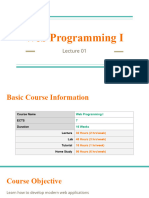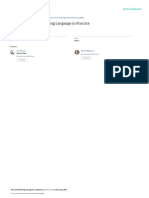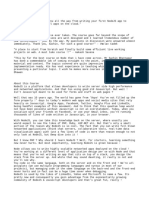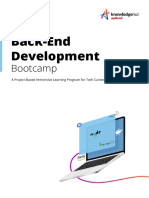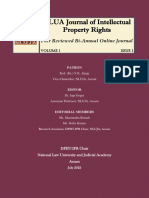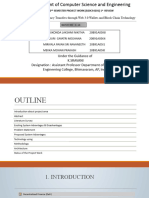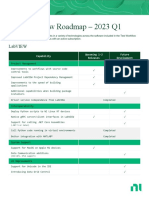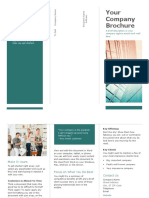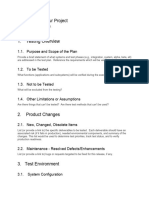Updated Roadmap: Golang Backend Developer (6 Months, 20
Hours/Week)
Kapil
February 23, 2025
Contents
1 Overview 1
2 Roadmap Phases 1
2.1 Phase 1: Master Golang, DSA, and Frameworks . . . . . . . . . . . . . . . . . . . . . . . . . 1
2.2 Phase 2: System Design and Frameworks . . . . . . . . . . . . . . . . . . . . . . . . . . . . . 2
2.3 Phase 3: Database Mastery . . . . . . . . . . . . . . . . . . . . . . . . . . . . . . . . . . . . . 3
2.4 Phase 4: Cloud Computing, Deployment, and Frameworks . . . . . . . . . . . . . . . . . . . . 3
2.5 Phase 5: CS Fundamentals Deep Dive . . . . . . . . . . . . . . . . . . . . . . . . . . . . . . . 4
3 Total Time Breakdown 4
4 Enhancements 4
5 Go Frameworks Justification 4
6 Workflow Tools 5
7 Time Management 5
8 Conclusion 5
1 Overview
This roadmap is designed to master Golang backend development, strengthen computer science (CS) funda-
mentals, and excel in your role as a Golang backend developer within 6 months (26 weeks) with 20 hours/week
of upskilling (520 hours total), alongside your 40-hour/week job. Your strong background in data structures
and algorithms (DSA) and competitive programming in C++ reduces the learning curve. The total hours
required are 365-470, fitting within 520 hours, making this feasible in approximately 19-24 weeks (4.5-6
months). Key Go frameworks like Gin, Fiber, Echo, Beego, and Go kit are integrated to enhance your
backend skills.
2 Roadmap Phases
2.1 Phase 1: Master Golang, DSA, and Frameworks
Objective: Build advanced Golang skills, implement DSA in Go, and master Gin and Fiber.
Topics:
• Advanced concurrency (goroutines, channels, mutexes)
1
� • Error handling, performance tuning (pprof)
• Testing with Testify, GoCheck
• DSA in Golang (e.g., graphs, trees)
• Go Frameworks: Gin (REST APIs), Fiber (fast APIs)
Tasks:
• Study concurrency and error handling (30 hours)
• Solve 20-30 LeetCode problems in Go (20 hours)
• Build REST API with Gin and Fiber (40-50 hours)
Resources:
• Books: “Go in Practice” by Tudor Giurgiu, “Concurrency in Go” by Katherine Cox-Buday
• Courses: Golang for Beginners (Udemy), Go Programming Language (edX)
• Frameworks: Gin Docs, Fiber Docs
• Practice: LeetCode
Communities: r/Golang (Reddit), Golang Slack
Estimated Time: 4.5-5.5 weeks (90-110 hours)
Job Application: Optimize work APIs with Gin/Fiber concurrency and testing.
Tools: Neovim, Git/GitHub
2.2 Phase 2: System Design and Frameworks
Objective: Design scalable systems with Echo and Beego.
Topics:
• Microservices architecture, API design, scalability
• Design patterns (MVC, Singleton, Observer)
• Security (authentication, encryption)
• Go Frameworks: Echo (flexible APIs), Beego (enterprise apps)
Tasks:
• Learn system design and patterns (30 hours)
• Build microservices with Echo and Beego (40-50 hours)
Resources:
• Books: System Design Primer (GitHub), “Designing Data-Intensive Applications” by Martin Klepp-
mann
• Courses: System Design (Coursera)
• Frameworks: Echo Docs, Beego Docs
Communities: r/SystemsDesign (Reddit)
Estimated Time: 3.5-4.5 weeks (70-90 hours)
Job Application: Propose microservices or caching with Echo/Beego.
Tools: Hyprland, VS Code with Go extensions
2
�2.3 Phase 3: Database Mastery
Objective: Enhance database skills for optimization.
Topics:
• Advanced SQL (indexing, joins), NoSQL (MongoDB, Cassandra)
• Transactions, concurrency control
• ORM with Beego
Tasks:
• Study SQL/NoSQL and transactions (30 hours)
• Integrate MongoDB with Beego, optimize SQL queries (30-50 hours)
Resources:
• Books: “SQL for Data Scientists” by Renée M. P. Teate, “NoSQL Distilled” by Pramod J. Sadalage
• Courses: SQL Basics (Khan Academy), MongoDB Basics (MongoDB University)
Communities: r/Database (Reddit)
Estimated Time: 3-4 weeks (60-80 hours)
Job Application: Optimize database performance at work.
Tools: Linux/Bash scripts, Docker
2.4 Phase 4: Cloud Computing, Deployment, and Frameworks
Objective: Deploy scalable apps with Go kit.
Topics:
• Cloud platforms (AWS, GCP), Docker, Kubernetes
• Monitoring (Prometheus, Grafana)
• Go Framework: Go kit (microservices)
Tasks:
• Learn cloud and containerization (20 hours)
• Deploy Gin/Fiber app and Go kit microservice (25-50 hours)
Resources:
• Books: “AWS for Developers” by David S. Linthicum, “Kubernetes in Action” by Marko Luksa
• Courses: AWS Cloud Practitioner (Udemy)
• Framework: Go kit Docs
Communities: r/AWS (Reddit)
Estimated Time: 2.25-3.5 weeks (45-70 hours)
Job Application: Suggest cloud deployment or monitoring.
Tools: CI/CD (GitHub Actions), Docker
3
�2.5 Phase 5: CS Fundamentals Deep Dive
Objective: Build a strong CS foundation.
Topics:
• Computer architecture (CPU, memory)
• Operating systems (processes, threads)
• Networks (TCP/IP, HTTP)
Tasks:
• Study architecture, OS, and networks (60 hours)
• Optimize a backend process (40-60 hours)
Resources:
• Books: “Computer Organization and Design” by David A. Patt, “Operating System Concepts” by
Abraham Silberschatz
• Courses: “CS 101” (YouTube), Intro to CS (MIT OpenCourseWare)
Communities: r/ComputerScience (Reddit)
Estimated Time: 5-6 weeks (100-120 hours)
Job Application: Debug and optimize systems with OS/network insights.
Tools: Trello, pprof
3 Total Time Breakdown
• Minimum: 365 hours (19 weeks at 20 hours/week)
• Maximum: 470 hours (24 weeks at 20 hours/week)
• Within 6 Months: 19-24 weeks fits 26 weeks, with 2-7 weeks buffer
4 Enhancements
• Testing: Detailed in Phase 1 with Testify/GoCheck
• Design Patterns: Added in Phase 2 (e.g., MVC, Singleton)
• Security/Monitoring: Security in Phase 2, monitoring in Phase 4
5 Go Frameworks Justification
• Gin: Lightweight, fast (61.9k GitHub stars), ideal for REST APIs
• Fiber: High-performance, minimal, great for microservices
• Echo: Flexible, beginner-friendly, strong middleware support
• Beego: Full-stack, enterprise-grade, includes ORM and MVC
• Go kit: Best for microservices, offers service discovery
4
�6 Workflow Tools
• Neovim: Fast coding with Go plugins
• Linux/Bash: Automate builds/tests
• Git/GitHub: Version control, collaboration
• Hyprland: Organized workspace
• VS Code: Go extensions for debugging
• Docker: Consistent environments
• CI/CD (GitHub Actions): Automated deployments
7 Time Management
• Schedule: 4 sessions/week, 5 hours each
• Weekly Goals: Set phase-specific tasks (e.g., “Build Gin API by Week 2”)
• Breaks: 10-15 mins/hour, ensure sleep/exercise
8 Conclusion
This roadmap is feasible in 6 months with 20 hours/week, leveraging your skills and job experience. You
will master Golang, key frameworks, and CS fundamentals, excelling at work by applying optimizations and
scalable solutions.

















